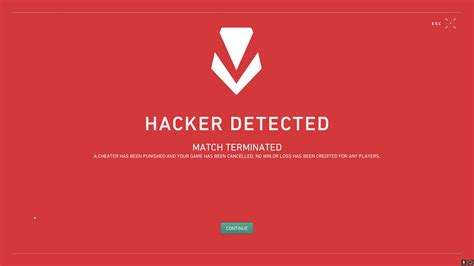When it comes to Team Fortress 2, a game that has enchanted players for nearly two decades, the community is fiercely divided over the best course of action to deal with cheaters. The suggestion of implementing kernel-level anti-cheat systems, as seen in games like Valorant, has sparked significant debate. However, the feasibility and repercussions of such a move remain contentious.
One key argument in favor of adopting a kernel-level anti-cheat system is its apparent efficacy in other games. Riot Games’ Vanguard, used in Valorant, utilizes early kernel mode drivers signed by Microsoft and a secure boot using remote attestation, which makes it formidable against most cheat mechanisms. This strategy certainly has its fans, as seen from the positive reception in the Valorant community. Case in point, the success is highlighted in forums such as r/valorant, where players largely support this stringent level of anti-cheating.
Nevertheless, not everyone is convinced. One major argument against kernel-level anti-cheat systems is their invasiveness and potential to create more problems than they solve. Several gamers have expressed frustration over Vanguard causing issues like system crashes and constant reboots. A comment highlights a user’s frustration: ‘Playing is such a hassle now. Last time I tried to play, my PC bluescreened on the loading screen with an error about vgk.sys. (Vanguard) Then on reboot, I get into the game late.’ It is clear that the stability and intrusive nature of kernel-level anti-cheat systems might deter more players than they protect.
Moreover, the topic of gamer privacy can’t be ignored. Kernel-level anti-cheat systems have sparked alarm among privacy-conscious gamers. These systems operate at the highest level of system permissions to effectively detect and thwart cheats. However, this deep system access raises significant security concerns. As one commentator aptly puts it, ‘Kernel level anti-cheat is a very invasive piece of software to require to play a game, and it does not solve all problems magically.’ This sentiment resonates deeply with the community that prizes their digital autonomy.
Another dimension worth considering is the longevity and adaptability of anti-cheat mechanisms. Cheating in online games has long been a cat-and-mouse game, with hackers constantly evolving their methods to bypass anti-cheat systems. Valve’s own VAC (Valve Anti-Cheat) system, as seen in CS2, has been criticized for being ineffective. Various users note that hackers in CS2 have shifted to third-party platforms like FACEIT which offers a paid, kernel-level anti-cheat solution. Unfortunately, this has segregated the community, making it increasingly difficult for casual and competitive players to coexist within the same ecosystem.
Cheating is indeed a scourge, but many argue that the root cause of TF2’s problem lies more in Valve’s neglect. Reinforcing this notion, one commenter succinctly states, ‘The issue here is neglect, nothing more.’ Valve has all the server-side data they need to identify and ban aim-bots and spam, but they choose not to act on it. This aspect raises the essential question of why Valve has been reluctant to allocate resources to maintain and update the anti-cheat measures in TF2.
So, what could be the way forward for Team Fortress 2? Improving community tools and reviving a well-moderated server culture seems to be a promising alternative. Comments suggest that self-policed communities, aided by adequate moderation tools, can significantly mitigate cheating. Just look at how Minecraft servers handle griefers and hackers with their whitelisting and community rules approach. Perhaps TF2 could benefit from a similar community-focused moderation model instead of resorting to highly invasive, kernel-level anti-cheat systems.
In conclusion, while kernel-level anti-cheat systems like Vanguard appear effective, their intricacies make them less than ideal for a game like Team Fortress 2. Balancing the need for a cheat-free environment while ensuring user privacy and game stability remains a delicate act. Valve needs to reassess their commitment to TF2, invest in reinforcing its community, and develop a nuanced approach to tackling cheaters, blending server-side intelligence and robust community tools. As the community often says, ‘If they can solve or at least mitigate the bot problem, TF2 could get its second chance.’


Leave a Reply